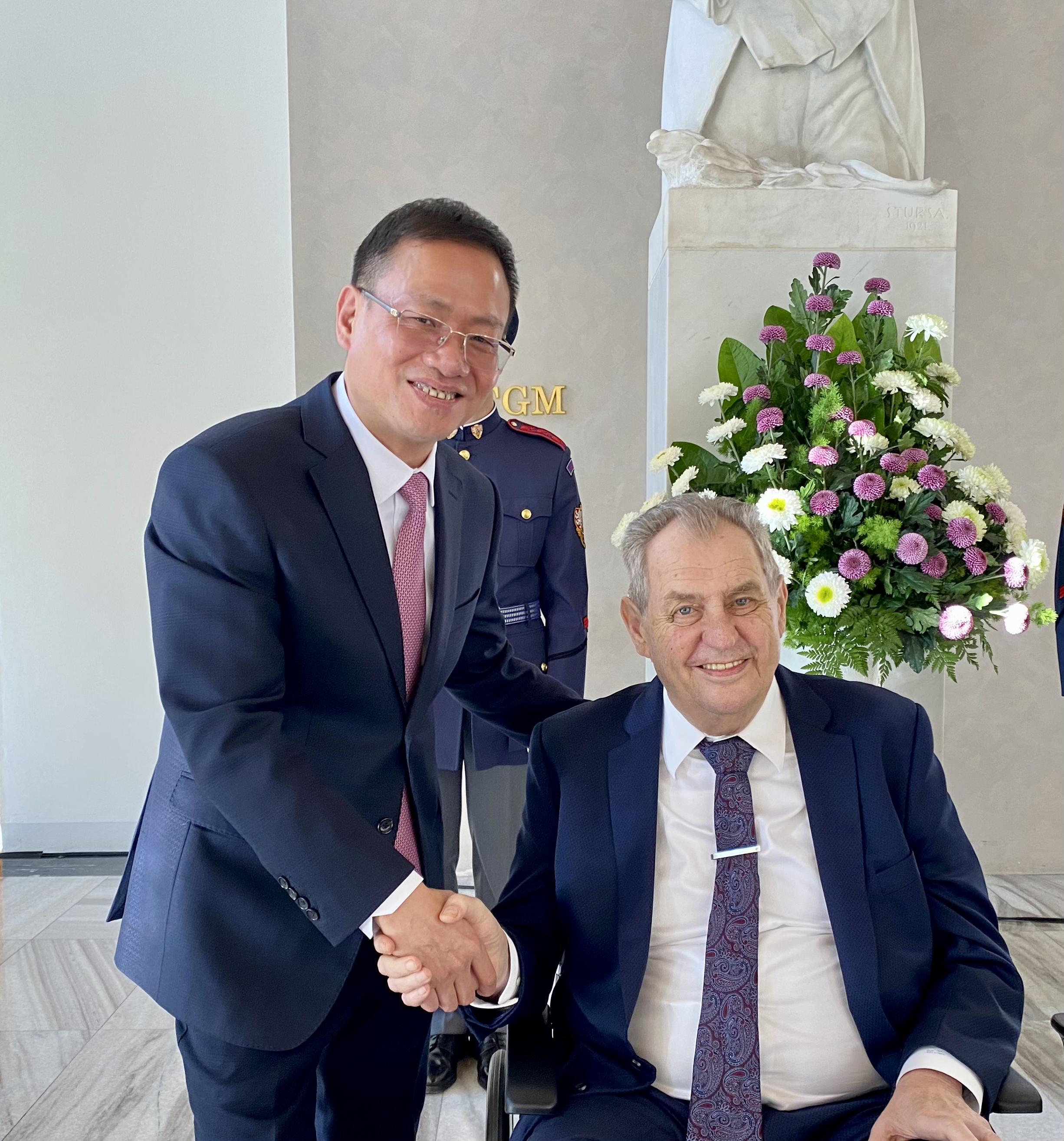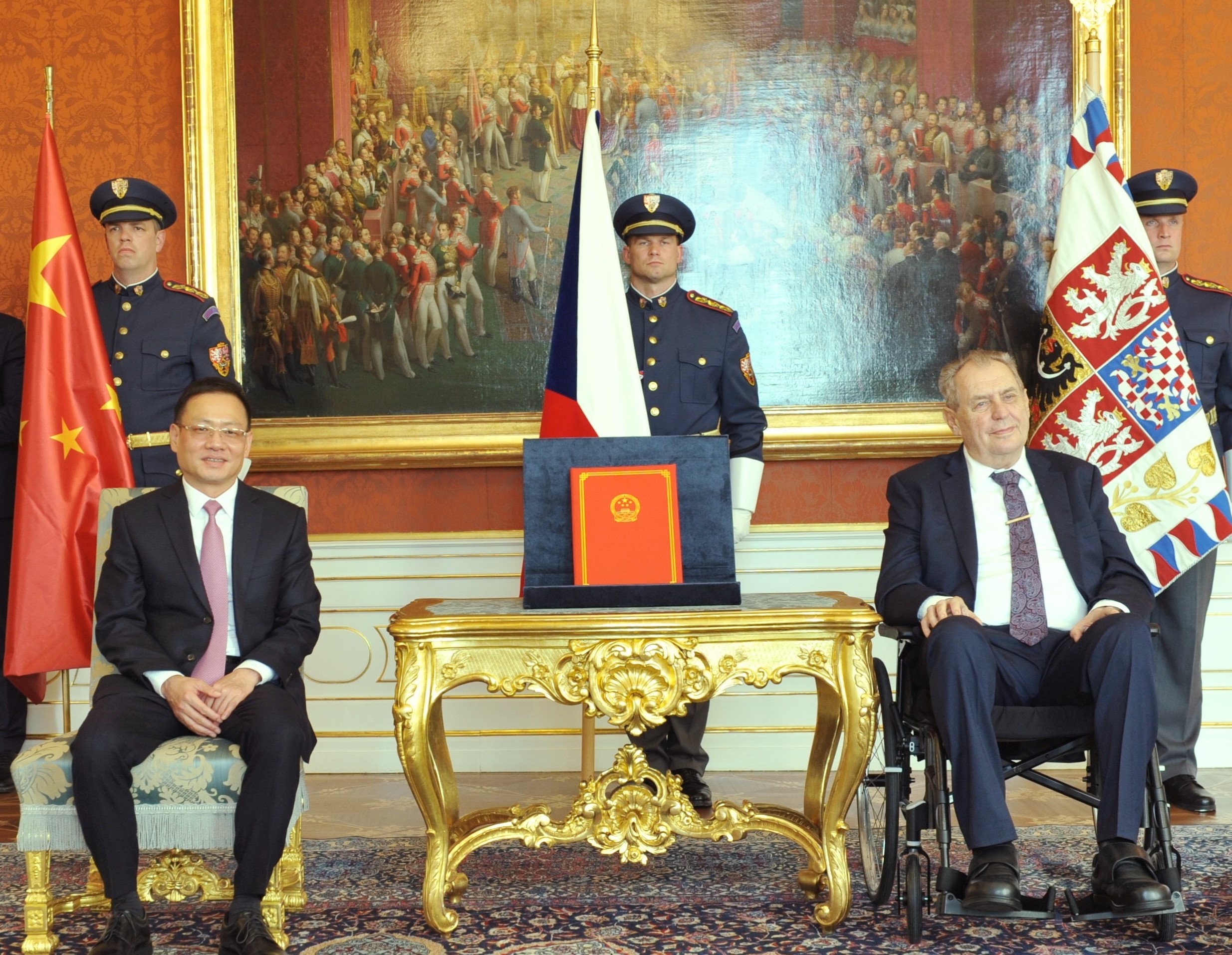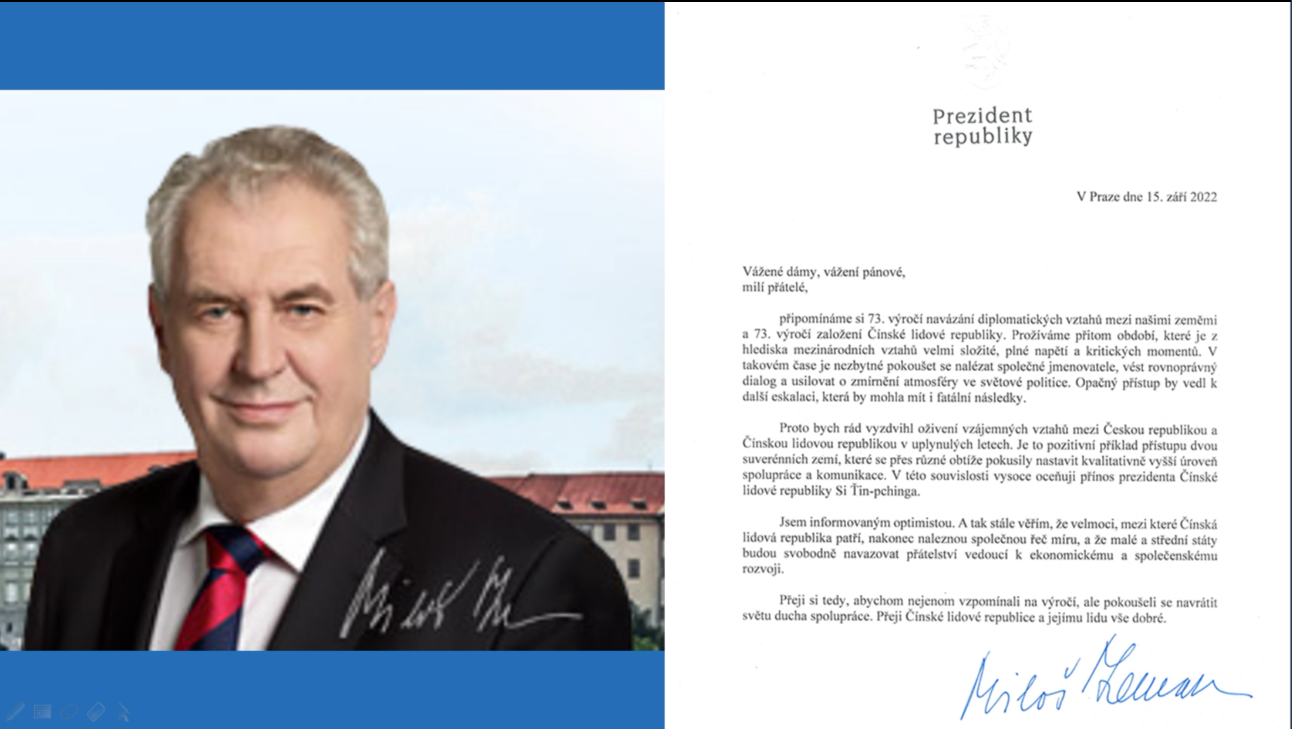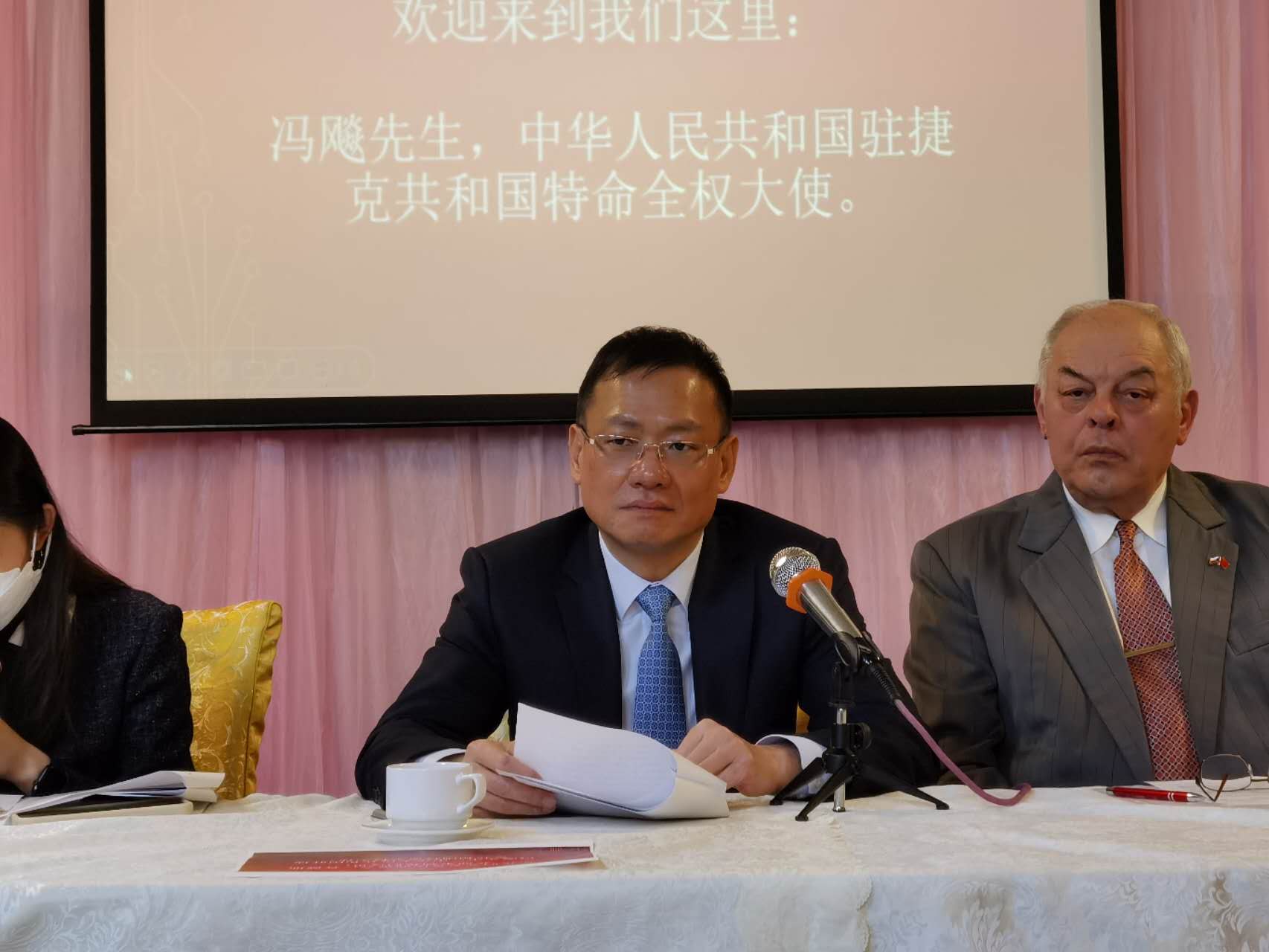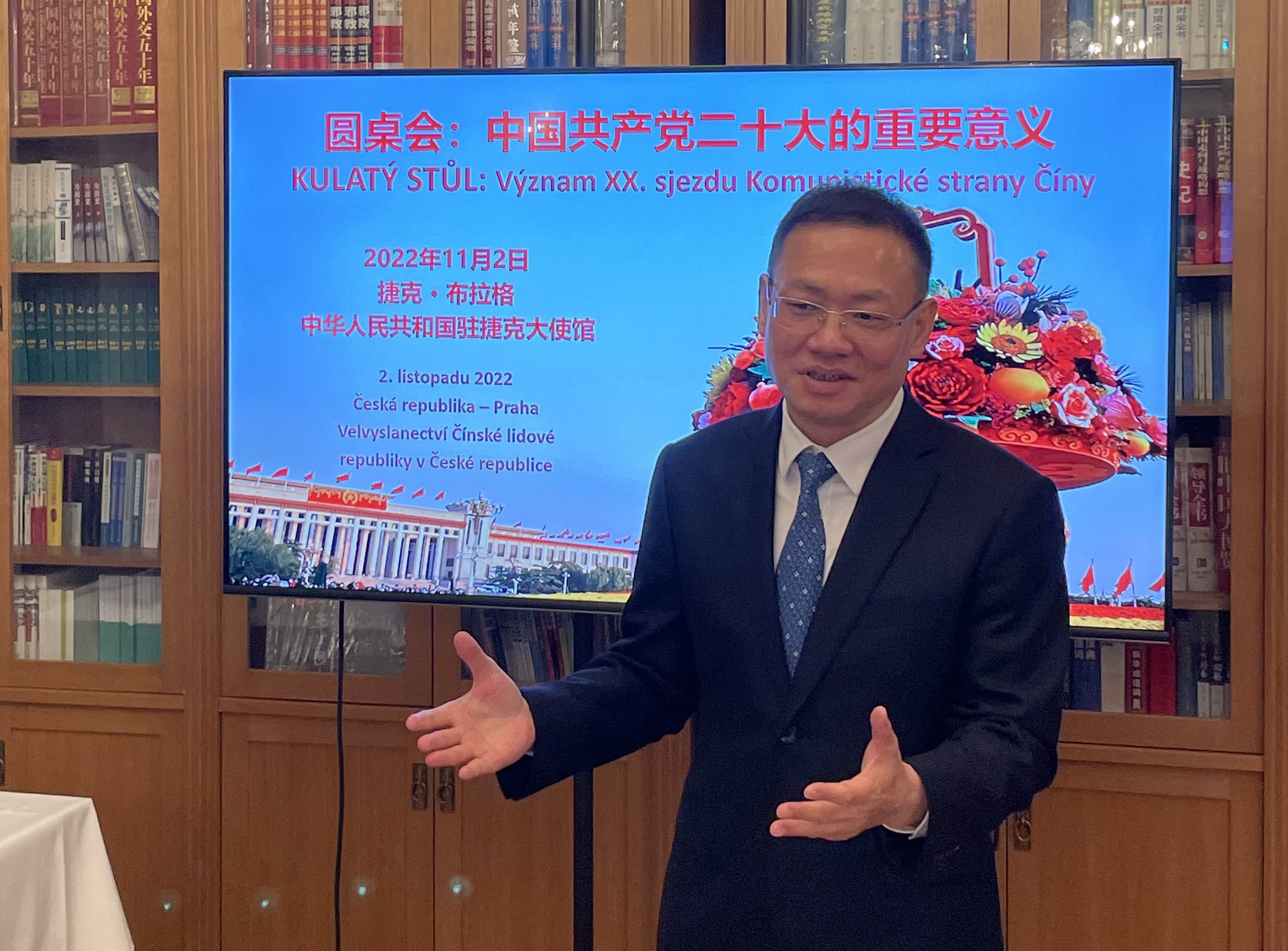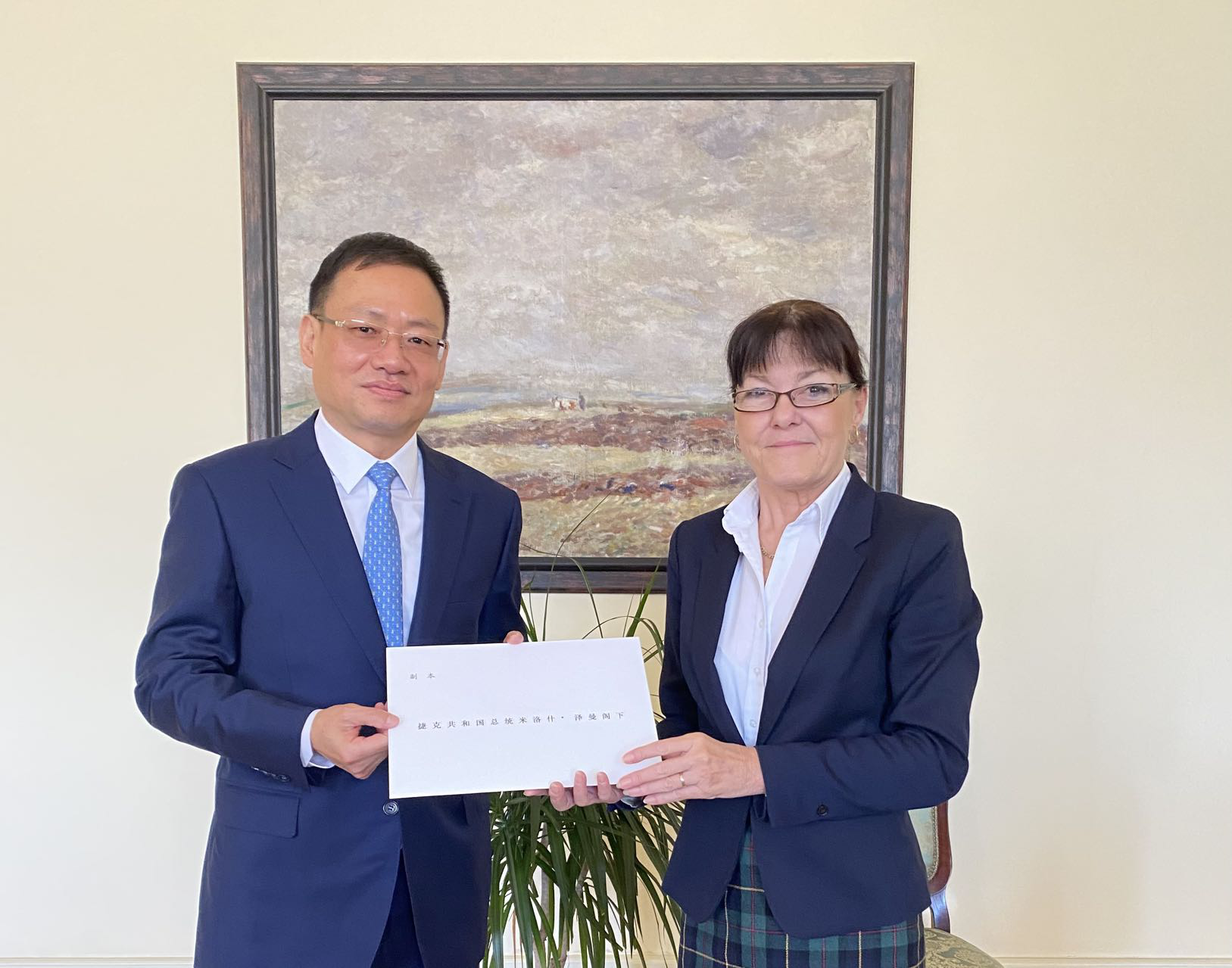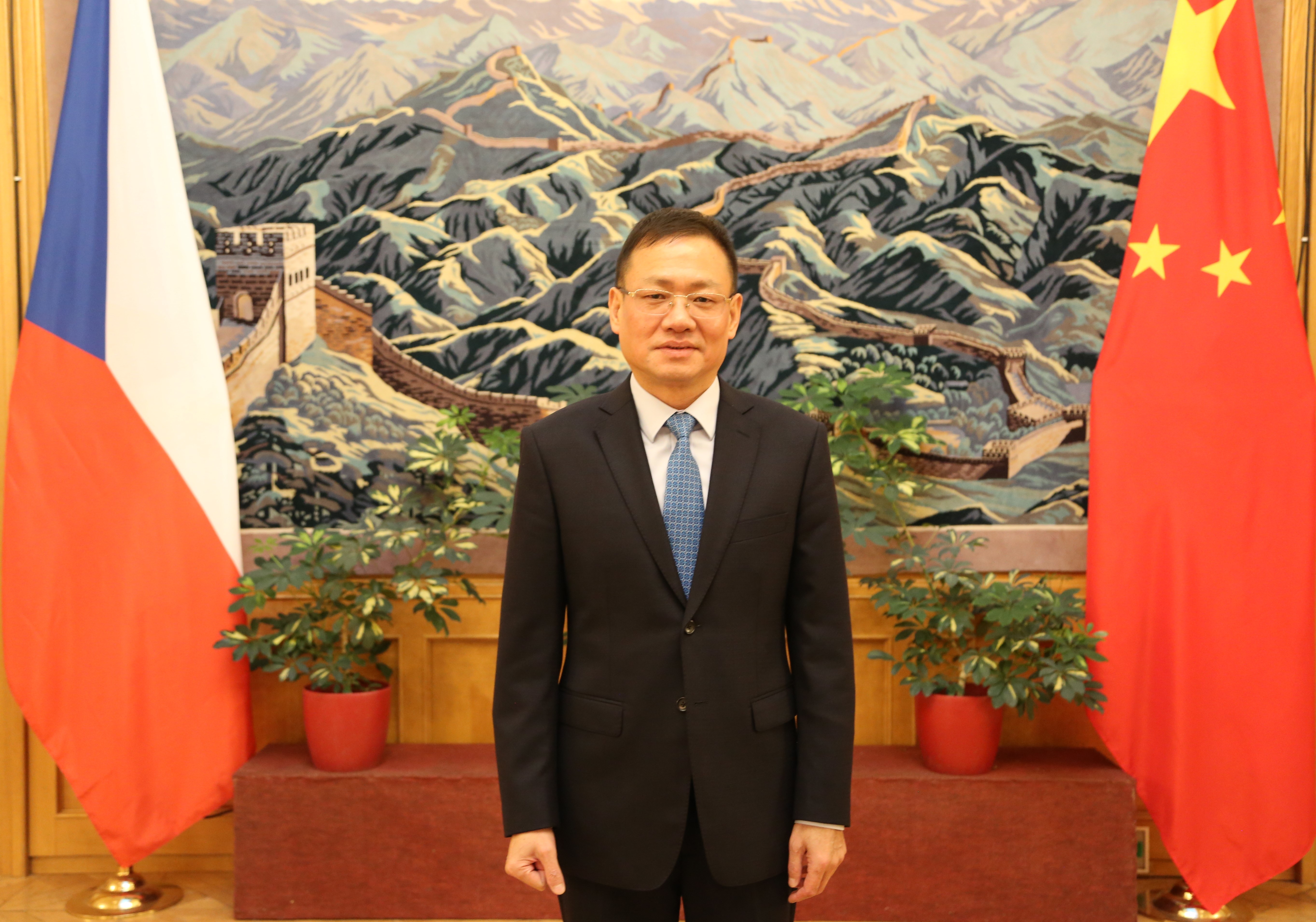| VerdantMountains Cannot Stop Water Flowing; Eastward the River Keeps on Going |
| 2009-12-25 22:30 |
| From 16 to 18 December, in the nearly 60 hours Premier Wen Jiabao spent in In his important speech at the high-level segment of the conference, Premier Wen reiterated the consistent position of the Chinese government. He called on all sides to build consensus and strengthen cooperation to advance the historical process of combating climate change. Confronted by the complicated situation in and outside the History will remember the important contribution of the Chinese government to the success of the "He who is cautious may seem timid in the beginning, but his mettle will shine through in the end." Always well prepared, Premier Wen Jiabao thought carefully on how to ensure a successful conference before leaving for The argument between developing and developed countries on global warming has grown ever more heated in recent years. As the largest developing nation, On 26 November, the Chinese government announced the target of cutting carbon dioxide emissions per unit of GDP by 40-45 percent from the 2005 level by 2020. The announcement was widely applauded by the international community. It was also announced on that day that Premier Wen Jiabao would attend the After the opening of the conference on 7 December, At 15:00 on the afternoon of 16 December, the plane carrying Premier Wen and the Chinese delegation took off from "It is a huge task to attend the conference on behalf of the Chinese government. I am deeply aware of the heavy responsibility upon me," Premier Wen said to the travelling press corps on board the plane. "On my way to the airport, I thought of two ancient sayings. One is 'He who is cautious may seem timid in the beginning, but his mettle will shine through in the end', and the other is 'Thorough planning at the outset will serve one well in his ensuing endeavors'. In other words, if you think carefully as you embark on a mission, you will be able to act with courage and resolve." In fact, the premier's journey to On 27-28 November, representatives of the BASIC countries, i.e. From 8 December onwards, as national delegations were engaged in tough negotiations in On 11 December, Premier Wen made a visit to the China Meteorological Administration and convened a discussion with experts on climate change. During the meeting, he called for resolute and strong measures to meet the government's target for controlling greenhouse gas emissions. Premier Wen had also followed closely developments at the It was apparent that Premier Wen had already carefully thought about the complicated situation awaiting him. He said, "I am confident that with so many leaders converging on After this mid-air briefing, Premier Wen called a meeting of the accompanying ministers to analyze the position of various parties. Then, alone in his cabin, the premier looked out at the sea of clouds outside the plane, staring intensely, deep in thought. It was not a light-hearted mission, he knew. So many things needed to be considered before the conference could be brought to a fruitful conclusion. At 16:45 local time, Premier Wen's plane touched down at Everyone in the Chinese delegation was tired after a 10-hour flight that had crossed seven time zones and over 7,000 kilometers, but Premier Wen still decided to go straight to the Chinese embassy, where he would hear briefings on the latest developments and plan next steps. Over one hour had passed before he finally left the embassy and checked in at the Radisson Hotel. "The most important thing is to build consensus quickly." - Confronted by a complicated situation, Premier Wen Jiabao worked with sincerity, resolve and confidence to mediate, communicate, coordinate, bridge differences and expand common ground. At 6:00 on 17th, Premier Wen went to breakfast. He was briefed at the breakfast table. As the negotiations in At 8:30, Premier Wen walked into the meeting room, brimming with energy and ready for a whole day of intense meetings. The first leader he met was Prime Minister Rasmussen of the host country Premier Wen expressed full understanding of the pressure facing the host. He attributed various divisions to four focal issues, namely, a basic text, financial support, the long-term target and MRV (measureable, reportable and verifiable). He suggested that pragmatic efforts be made in accordance with the principle of "common but differentiated responsibilities" to build on the two draft texts presented by the chairs of the two Ad hoc Working Groups, lock up the consensus already achieved and leave the divisive elements to future deliberations. He said this might be the only viable way, and a resolution thus reached could represent an outcome of the conference. Prime Minister Rasmussen thanked Premier Wen for his constructive proposal. He said if all other leaders could work as vigorously as the Chinese Premier, the conference would achieve success. Premier Wen then met UN Secretary-General Ban Ki-moon. Ban was also gravely concerned about the stalled process and regarded a conference without any gains as unacceptable. Premier Wen pointed out that it was unrealistic for the nearly 200 countries to patch up their wide differences in less than two days. The Chinese people and people across the globe all looked forward to a successful conference. The most important thing at the moment was to build consensus quickly. The conference could opt for a political document that reflected the consensus of all parties aimed at affirming the political will, recognizing the existing achievements, and sending a message of confidence and hope to the world. Premier Wen stressed that the drafting process and consultations must be open and transparent. The opinions of all parties must be duly solicited and the concerns of the developing countries in particular must be taken seriously. He expressed the hope that the United Nations would play an important role in this process. Ban nodded, absorbed in thought. By now, Premier Wen had explained to both the host and the United Nations the overall considerations and operational recommendations of the Chinese government concerning the outcome of the conference. What happened later proved that Premier Wen's suggestions were forward-looking and workable. At 11:00, Premier Wen headed to the hotel where Brazilian President Lula da Silva stayed. President Lula had proposed a working breakfast among the leaders of BASIC countries, but that was cancelled due to technical difficulties with the Indian and South African leaders. When Premier Wen learned this, he asked for a bilateral meeting with President Lula. The two old friends shook hands, hugged each other and started a cordial conversation. They confirmed the broad common understanding between the two countries on climate change, and pledged to stand together with other developing countries to uphold shared interests while stepping up consultation and coordination with all relevant parties in order to play a positive role. At noon, Premier Wen rushed back to the Radisson Hotel for a group meeting with President Nasheed of the Maldives and Prime Minister Thomas of Grenada representing small island developing states, Prime Minister Meles Zenawi of Ethiopia representing Africa, Prime Minister Hasina of Bangladesh representing the least developed countries (LDCs), and the Sudanese presidential assistant Nafie Ali Nafie representing the Group of 77. As a developing country, Financial support was the top concern to these countries. A delegate from a major power had said earlier that money would not be given to Premier Wen had deep sympathies for small island states over their vulnerable ecosystems and fully understood their special requests for curbing global temperature rise. He explained in great detail Premier Wen then invited the leaders to lunch, where they continued discussion. Their meeting, which lasted over two hours, was the longest Premier Wen had in The On the afternoon of 17th, Premier Wen had separate meetings with British Prime Minister Gordon Brown, German Chancellor Angela Merkel and Japanese Prime Minister Yukio Hatoyama and discussed with them about relevant issues in a patient and thoughtful way. Premier Wen pointed out that at this critical juncture, all parties should stop finger pointing. Still less should they engage in bargaining, as this would only waste time. All parties should observe the principle of "common but differentiated responsibilities", bear in mind the broader interests, quickly build consensus and shelve disputes, and work together for a successful outcome. Premier Wen stressed the fact that Premier Wen emphasized that the developing countries had the prime task of eradicating poverty and growing economy, but this should not be done along the old path of industrialization followed by developed countries and at the expense of resources and the environment. Developed countries should appreciate and support this and honor their commitments on financial and technological assistance. Developing and developed countries should work closely together to bring about the best result possible out of the conference. Despite differences over certain issues, all the talks were held in a frank and in-depth manner, because this was the only way to increase mutual understanding and expand common ground. The meetings all went longer than originally planned. After seeing off Prime Minister Brown, Premier Wen apologized to the waiting German Chancellor Merkel, "Madam Chancellor, sorry to have kept you so long." The chancellor replied with humor: When Prime Minister Brown bumped into her on his way out, he said exactly the same thing. People in the room burst into laughter. As soon as the meetings came to a close, Premier Wen asked Vice Foreign Minister He Yafei to hold a press conference to give a detailed briefing on his meetings with various leaders and explain on what issues China had to stick to its position and on what other issues China would be ready to show flexibility. More than 200 Chinese and foreign journalists attended the press conference and they swiftly reported to the world At 20:00 on 17th, Premier Wen attended the dinner hosted by Queen Margrethe II of Something unexpected however happened during the dinner. A foreign leader mentioned to Premier Wen inadvertently that a certain country would call a small-group leaders' meeting following the dinner to discuss a new text. This caught Premier Wen's attention, because the list of invited countries held by this leader had the name Premier Wen concluded that this was no small matter. Since the start of the conference, there had been cases where individual or small group of countries put forward new texts in disregard of the principle of openness and transparency, arousing strong complaints from other participants. He immediately left for the hotel, where he convened a meeting to discuss how to respond. Upon Premier Wen's instruction, Vice Foreign Minister He rushed to the venue of the small-group meeting and raised serious concerns with the host for arranging such a meeting with hidden motives. He stressed that the principle of openness and transparency must be respected. No one should try to form small circles or force decisions upon others, or they would risk leading the conference to failure. In the meantime, speculations and rumors of all sorts were prevalent: some developed countries were planning together privately to put more pressure on China; major emerging countries were vehemently obstructing the negotiation process, and the conference was therefore very likely to end in failure; developed countries, unhappy with China's rejection of MRV, refused to offer more financial assistance to small island states; the developing camp was beginning to fall apart; a certain big power intended to propose its own text, and so on and so forth. All signs pointed to a less and less optimistic picture. Deep into the night, the wind was blowing harder. All parties were making their final preparations. "A message of confidence and hope" – The world was watching At 8:30 on 18th, before attending the leaders' event, Premier Wen had a meeting with the Indian Prime Minister Manmohan Singh, who had just flown in. Premier Wen and Prime Minister Singh are old friends. This was their second meeting in the year. They both knew that only solidarity and cooperation would bring about a true "Asian Century" of harmony, development and prosperity. And this would require the vision, courage and resolve of statesmen. Premier Wen started by making an overview of the latest developments of the conference. He also shared his views on the situation and sought Prime Minister Singh's opinion. Touched by Premier Wen's sincere words and gesture, the Indian prime minister said he fully echoed Premier Wen's comments. He pointed to the broad consensus and common interests shared by The At 9:45, Premier Wen arrived at the Center for the leaders' event scheduled to begin at 10 o'clock. The event attracted worldwide attention. However, neither the host nor the UN Secretary-General showed up at 10 and the stage was all empty. People began to speculate what had happened, but no one turned up to give an explanation. Some leaders came to say hello to Premier Wen and Premier Wen had friendly chat with them. The clock was ticking, wearing down people's enthusiasm and expectations for the leaders' event. Seeing this, Premier Wen immediately made the decision to call another meeting among the BASIC leaders. There was no time to get a meeting room. The four leaders simply sat around a small coffee table in the lounge outside the plenary hall and started their discussion. They were resolved to work for an outcome at this final moment. Finally, at 11:30, the chair of the conference, Prime Minister Rasmussen, announced the opening of the event and invited Premier Wen to be the first to address the conference. Amid a big round of applause, the premier mounted the rostrum in his typical vigorous steps, looking calm, confident and determined. His speech, entitled "Build Consensus and Strengthen Cooperation to Advance the Historical Process of Combating Climate Change", contained a little more than 2,000 Chinese characters, but it was substantive, visionary and full of emotions. "At this very moment, billions of people across the world are following closely what is happening here in The fair and reasonable principles outlined by Premier Wen represented the shared aspiration of developing countries. They were both realistic and forward-looking, and had taken into account the interests of all parties. They pointed the way forward at a decisive moment of the conference, gave a strong push to the efforts to safeguard and advance the negotiation process, and therefore received widespread endorsement. A prolonged round of applause broke out from the audience. Some foreign leaders went to Premier Wen's place, shaking his hand and congratulating him on the speech. "As long as there is 1% hope, we will exert 100% efforts." - At the critical moment when the conference faced the danger of ending with nothing, the Chinese government helped make the Copenhagen Accord possible with extraordinary efforts. The meeting was scheduled to take place after President Obama's speech at the plenary session. It was held in a makeshift room of a steel frame covered with drapes. The two leaders exchanged views in a frank, in-depth and practical manner on the outcome of the conference, the long-term target, the MRV and other focal issues. They stated their respective views and also showed some flexibility. They agreed that the conference should speedily reach a political agreement and that After the meeting, Premier Wen immediately instructed the Chinese negotiating team to brief the BASIC countries and G77 on the China-US meeting and encourage developing and developed countries to work together and expedite the negotiation process. Developed and developing countries held consultations on the final document of the conference, yet it was still hard to make any progress due to the differences among parties. The scheduled closing time of the conference had long passed. Some countries started to prepare statements in the event of a breakdown and leaders of a handful of countries even made irresponsible remarks, pointing fingers at At the At this final moment, Premier Wen Jiabao once again played a crucial role. He called a meeting of the Chinese delegation and made a clear and realistic analysis of the situation. He said that it was no longer possible to reach a legally binding document now, yet all parties knew full well what a fruitless conference would mean and no one wanted to be held responsible for the failure. Premier Wen said that as long as there was 1% hope, we must exert 100% efforts and not give up easily. He decided on the spot to meet with President Lula, Prime Minister Singh and President Zuma again to make the last-ditch effort. At the same time, President Obama also proposed a second meeting with Premier Wen. Premier Wen agreed to meet with him after talking to the BASIC leaders. After a short while, leaders of the BASIC countries arrived at the meeting room of the Chinese delegation. They shared the view that there was the danger of a failed conference, and agreed that the BASIC countries could first reach consensus on the key issues and then talk to the Europeans and the At 18:50, when leaders of the BASIC countries were doing the final review of their common position, they heard a clamor of voices outside. The door was opened and there stood President Obama. Although the scheduled time for the second China-US meeting had passed, Obama's presence at that moment and that place still came as a surprise to the people inside. President Obama must, too, have felt a bit awkward. With one foot inside the door, he smiled and asked Premier Wen whether he was early and whether he should wait outside or come in and join the discussion. Premier Wen stood up and welcomed him courteously. President Obama was apparently touched. He first walked around the room, shaking hands with everyone inside, and then sat down on President Lula's left and across the table facing Premier Wen. As all the BASIC countries already had prior bilateral contact with the Journalists waiting outside had been watching what was going on in the room. Some shot pictures through the glass door. And soon they heard the sound of applause from inside the room. After consultations, the BASIC countries reached agreement with the The Word came in an hour later that the relevant parties had reached consensus on a draft resolution and would soon submit it to the plenary for a vote. It was already nine hours behind the scheduled closing time of the conference. What followed was some procedural work, and leaders thus started to leave The final outcome of the International media have had different readings of the outcome of the In a recent interview with the Xinhua News Agency, Premier Wen said that, with the Copenhagen conference as a new starting point, China is ready to work with other parties to honor commitments, enhance cooperation, complete the "Bali Roadmap" negotiations at an early date, and strive for continued progress in the international cooperation on climate change, thus making its due contribution to mankind's response to climate change. History has shown once again that the biggest challenge of mankind is mankind itself. Unity is the source of strength and cooperation leads to a bright future. The |
|
||||||||||||||||
| ||||||||||||||||
|
|
||||||||||||||||

